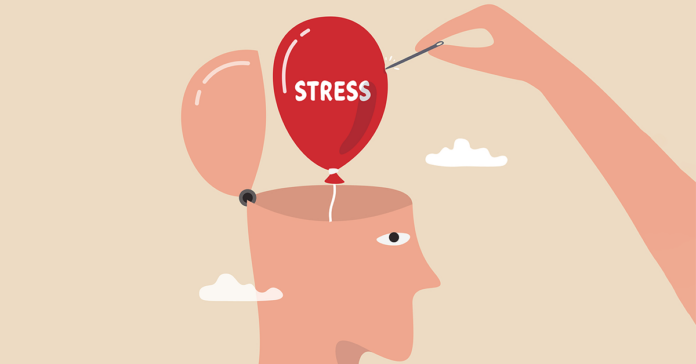By: Natalie Broom
Stress is the body’s natural response to pressure and it affects 55% of Americans every day. It can have mental, physical, and behavioral effects on the body. Stress is something many people can’t control but there are ways to try and decrease it. Through this article, I hope you will learn how to reduce stress in natural ways that work for you. This article will explain 3 different ways that can be used to decrease stress which include exercise, a healthy diet, and sleep.
Exercises to help with stress

Yoga, swimming, walking, running, and cycling are exercises that can help reduce your stress levels. Yoga is a great exercise for reducing stress because it’s a combination of physical and mental stimulation. The positions and poses require you to focus on your breathing and block out distractions and the poses at the end of each session can help you wind down. A great low-impact exercise to decrease stress would be swimming. Swimming enables you to take deep breaths and relax in the water. One of the easiest exercises for anyone to participate in is walking. Walking is a great way to get your heart rate up which releases endorphins; endorphins help decrease stress levels. Another useful exercise is running. When you run you release endorphins which in turn decreases your level of stress. The last exercise that can help in reducing stress levels is cycling. Cycling is for those who don’t like running or other high intensity exercises. Cycling increases your heart rate much like the other exercises and releases endorphins. All of these are great options to try if you are looking for easy stress reducing exercises.
A healthy diet to destress

A healthy diet provides extra energy needed to cope with stressful events. A few foods that can be incorporated into your diet that will reduce stress are chamomile tea, dark chocolate, berries, salmon, and oatmeal. Chamomile tea helps to calm stomach distress and relieve migraine-type headaches. It also decreases stress with its wonderful sedative and muscle-relaxing properties. Dark chocolate with a cocoa content of 70 percent or higher helps relieve stress by reducing the level of cortisol in the body. Berries such as strawberries, raspberries, blueberries, and blackberries are loaded with antioxidants and fiber, but it’s the high amount of Vitamin C that makes berries a stress-fighting food. Vitamin C helps the body return blood pressure and cortisol to normal levels after they have peaked. Salmon is a fatty fish that’s rich in omega-3 fatty acids. These oils keep the stress hormone cortisol under control while regulating adrenaline levels. The last recommendation is oatmeal. Oatmeal helps to relieve stress by releasing the chemical serotonin, which increases relaxation, calmness and creativity. It keeps your blood sugar steady and reduces the level of stress hormones in the brain.
How sleep can reduce stress

A lack of sleep can increase levels of stress in the body. It can cause your body to react as if it’s in distress, releasing more of the stress hormone also known as cortisol. Cortisol is responsible for your fight or flight reaction to danger. When you get a good amount of rest during the night your body naturally decreases the level of cortisol and other stress hormones. Creating a regular sleep routine will calm and restore your body, improve concentration, regulate mood, and sharpen judgment and decision-making. You will be able to handle stress better after getting a proper amount of sleep.





